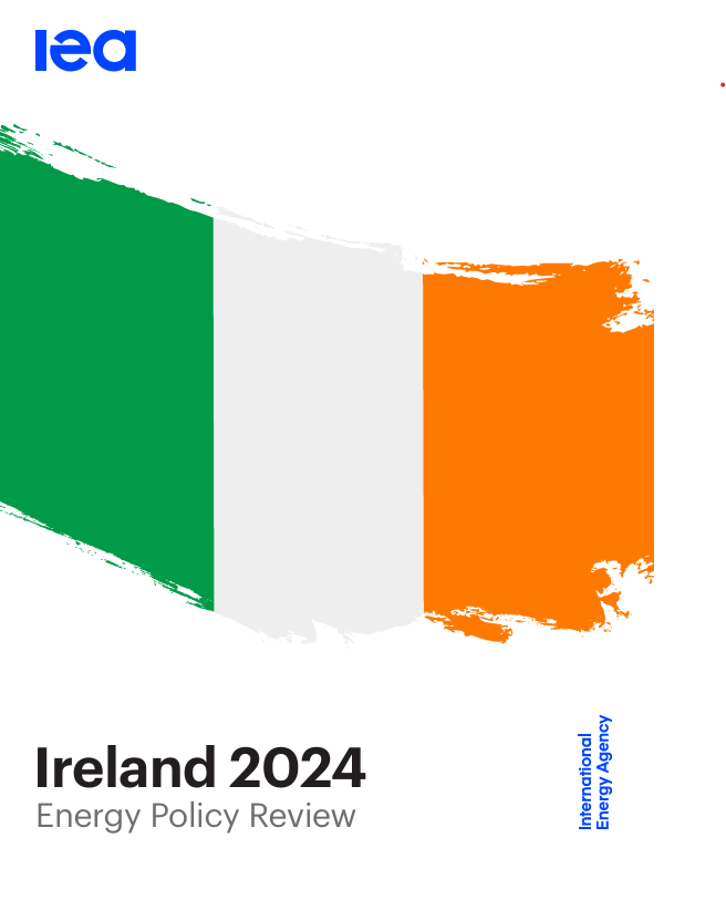
|
Energy Policy Review - Ireland 2024
Government action plays a pivotal role in ensuring secure and sustainable energy transitions and combatting the climate crisis. Energy policy is critical not just for the energy sector but also for meeting environmental, economic and social goals. Governments need to respond to their country’s specific needs, adapt to regional contexts and help address global challenges. In this context, the International Energy Agency (IEA) conducts Energy Policy Reviews to support governments in developing more impactful energy and climate policies.
2025.01
OECD/IEA
|
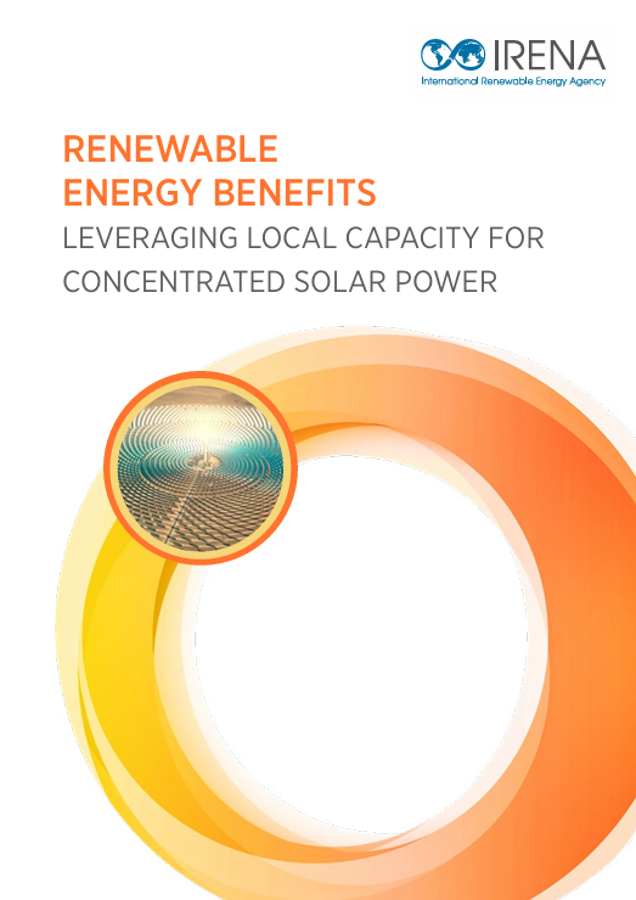
|
Renewable energy benefits: Leveraging local capacity for concentrated solar power
Renewable energy development can drive economic growth, create new jobs and enhance human health and welfare. IRENA’s leveraging local capacity series examines how renewable energy projects create jobs and how countries can maximise these benefits by anticipating their needs and building on existing skills and resources. These analyses outline the workforce and the types of jobs required across the entire value chain of selected technologies – from manufacturing to installation and operation, to help decision-makers identify opportunities for local value creation and workforce development.
2025.01
IRENA
|
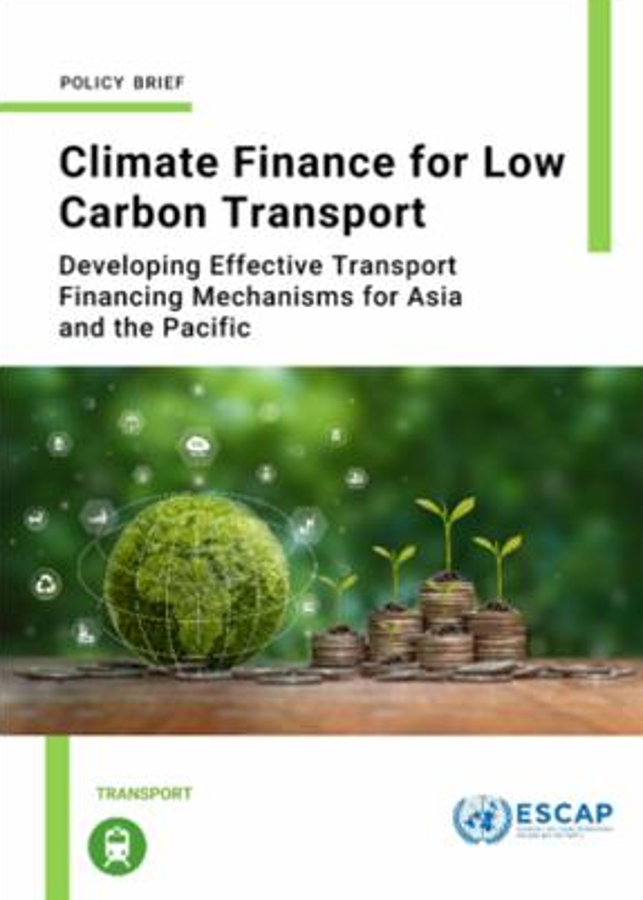
|
Climate finance for low carbon transport : developing effective transport financing mechanisms for Asia and the Pacific
The policy brief Climate Finance for Low Carbon Transport: Developing Effective Transport Financing Mechanisms for Asia and the Pacific was developed following the Regional Cooperation Mechanism on Low Carbon Transport: Identification and Development of Climate Financing Mechanisms regional meeting
2025.01
ESCAP
|
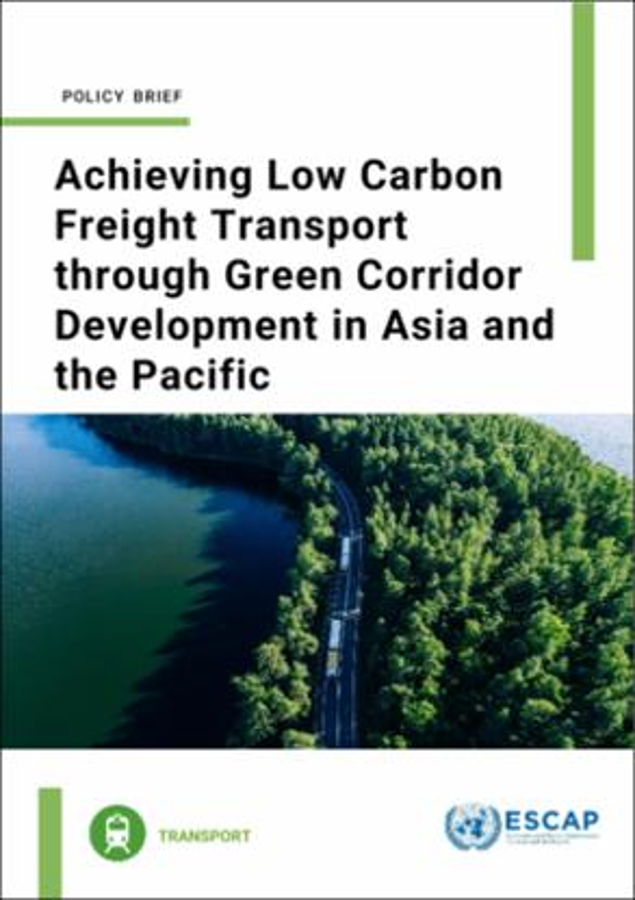
|
Achieving low carbon freight transport through green corridor development in Asia and the Pacific
The policy brief Achieving Low Carbon Freight Transport through Green Corridor Development in Asia and the Pacific was developed following the Regional Cooperation Mechanism on Low Carbon Transport: Creation of Green Transport Corridors in Asia and the Pacific regional meeting. The development and implementation of green freight transport policies have been identified as an important strategy for decarbonizing the transport sector.
2025.01
ESCAP
|
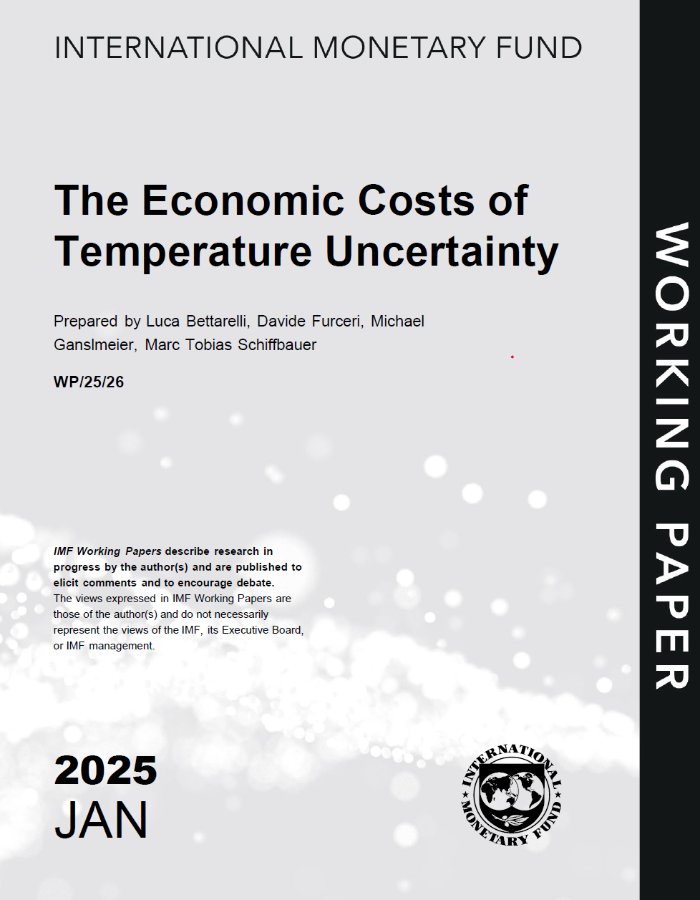
|
The Economic Costs of Temperature Uncertainty
Beyond its environmental damage, climate change is predicted to produce significant economic costs. Combining novel high-frequency geospatial temperature data from satellites with measures of economic activity for the universe of US listed firms, this article examines a potentially important channel through which global warming can lead to economic costs: temperature uncertainty. The results show that temperature uncertainty—by increasing power outages, reducing labor productivity, and increasing the degree of exposure of firms to environmental and non-political risks, as well as economic uncertainty at the firm-level—persistently reduce firms’ investment and sales. This effect varies across
2025.01
IMF
|
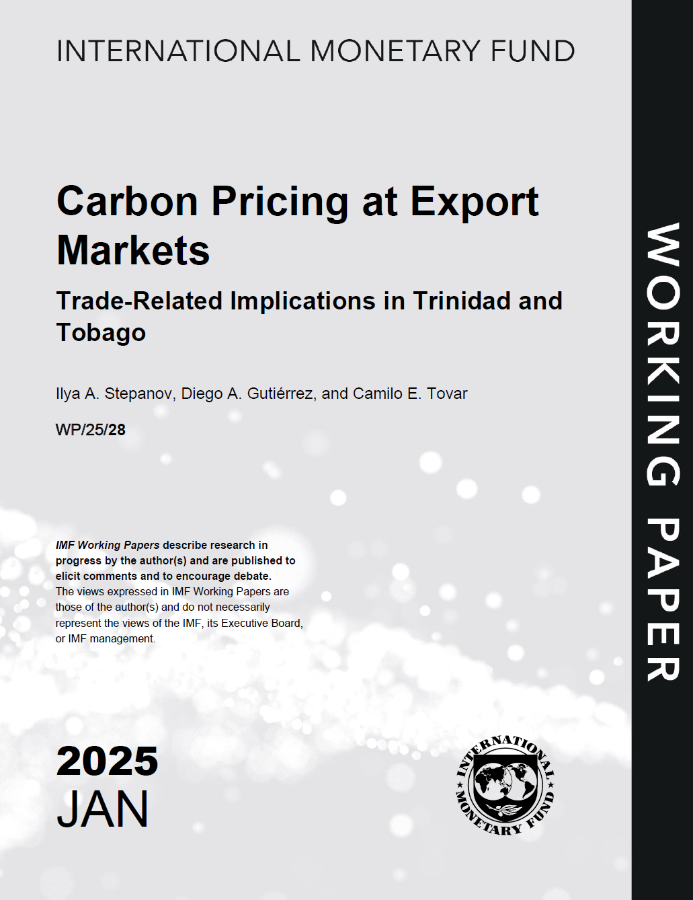
|
Carbon Pricing at Export Markets: Trade-Related Implications in Trinidad and Tobago
This paper examines the potential impact of border carbon adjustments on Trinidad and Tobago’s exports. Despite its marginal contribution to global greenhouse gas emissions, the country’s high carbon intensity exposes the economy to global low-carbon transition risks. The paper aims to raise awareness and encourage discussions on critical actions needed to maintain export competitiveness, enhance diversification, support balance of payments stability, and finance a green transition. The analysis recommends building on existing policies to integrate transition risks into development strategies, promote carbon intensity reduction, accumulate relevant data, and explore innovative emissions redu
2025.01
IMF
|
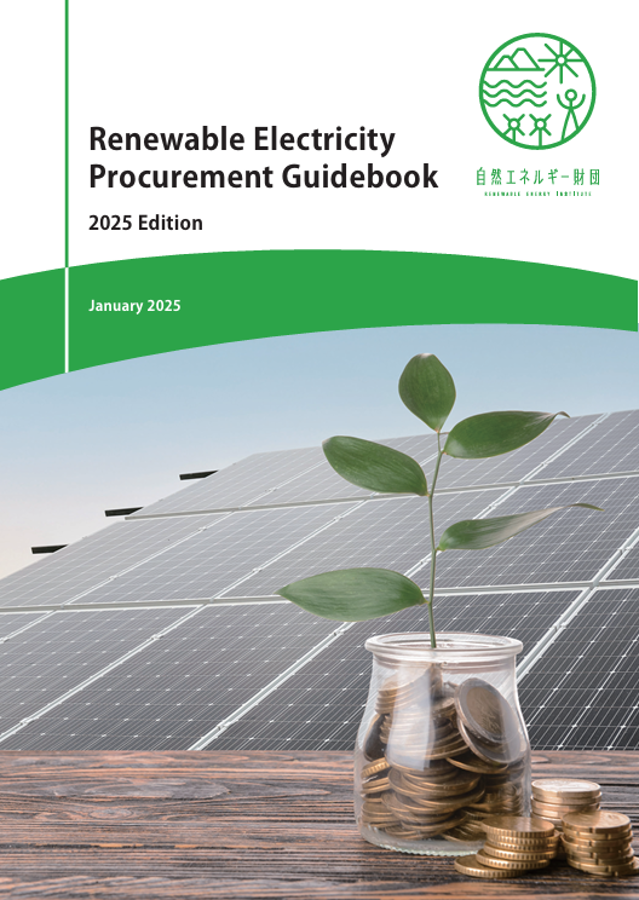
|
Renewable Electricity Procurement Guidebook
Renewable Energy Institute has been publishing the “Renewable Electricity Procurement Guidebook” for corporate energy users in Japan since 2018 and revises it annually with the latest information as renewable electricity procurement options continue to change.
2025.01
Renewable Energy Institute
|
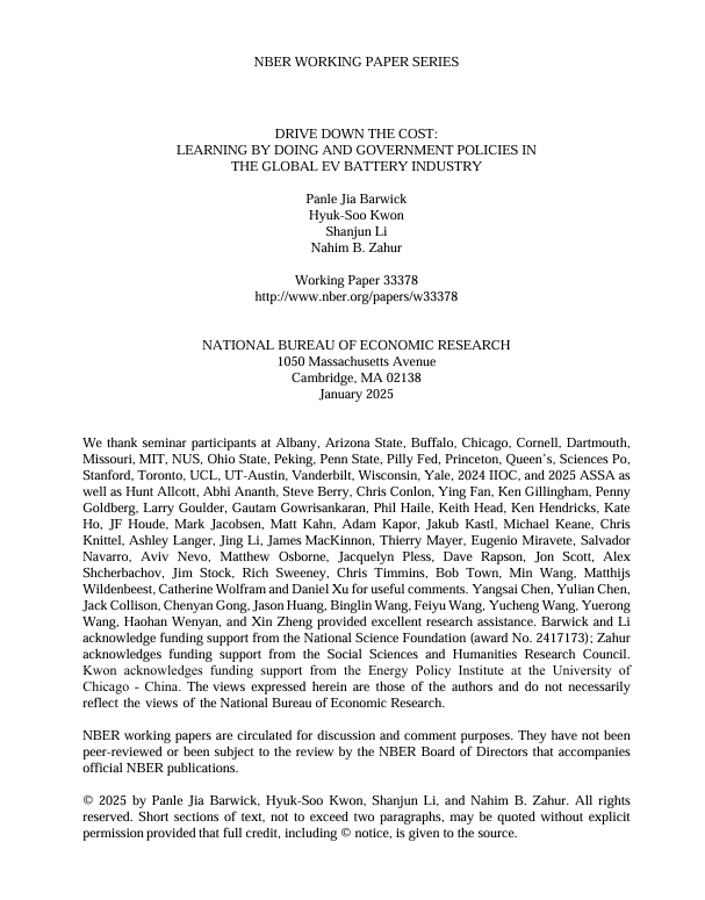
|
Drive Down the Cost: Learning by Doing and Government Policies in the Global EV Battery Industry
Electric vehicle (EV) battery costs have declined by more than 90% over the past decade. This study investigates the role of learning-by-doing (LBD) in driving this reduction and its interaction with two major government policies – consumer EV subsidies and local content requirements. Leveraging rich data on EV models and battery suppliers, we develop and estimate a structural model of the global EV industry that incorporates heterogeneous consumer choices and strategic pricing behaviors of EV producers and battery suppliers.
2025.01
NBER
|
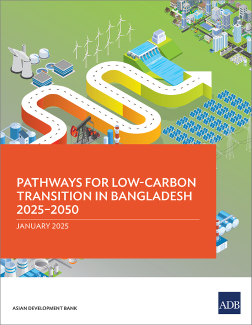
|
Pathways for Low-Carbon Transition in Bangladesh 2025–2050
This report examines business-as-usual and low-carbon scenarios for Bangladesh at the national level and Dhaka at the city level. It outlines the technologies, efficiency measures, and investment costs associated with the low-carbon transition in the country for 2025–2050
2025.01
ADB
|
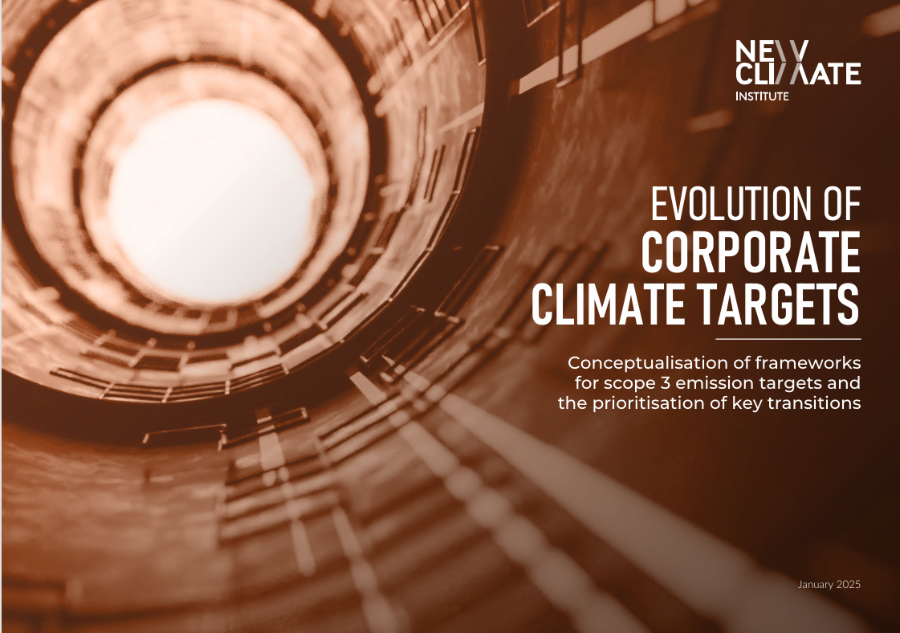
|
Evolution of Corporate Climate Targets
Conceptualisation of frameworks for scope 3 emission targets and the prioritisation of key transitions Transition-specific alignment targets are sector-specific metrics that directly track a company's progress in key climate transitions, such as zero-emission vehicle sales or near-zero-emission steel procurement. Complementing GHG reduction targets, they can provide a more focused way to guide and measure corporate climate strategies. This report highlights their significant potential across sectors, offers recommendations to address challenges, and advocates for their inclusion in national regulations, ISO standards, and voluntary frameworks like the SBTi’s Corporate Net Zero Standard.
2025.01
NewClimate Institute
|
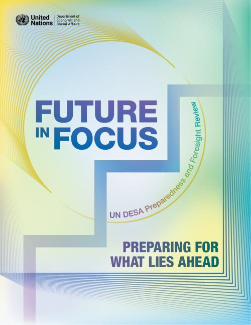
|
Future in Focus: Preparing for What Lies Ahead
In an era marked by complex and interwoven crises, the role of the United Nations in preparing for the future has never been more critical. This review of UN DESA’s foresight and preparedness efforts shows how the Department’s economic and demographic forecasts, capacity development programmes, and work towards accelerating an inclusive and just transition help governments and people make strategic choices to shape and prepare for the future they want.
2025.01
UN
|
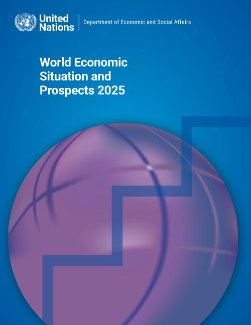
|
World Economic Situation and Prospects 2025
Global economic growth is projected to remain at 2.8 per cent in 2025, unchanged from 2024, according to the United Nations flagship report, World Economic Situation and Prospects (WESP) 2025. While the global economy has demonstrated resilience, withstanding a series of mutually reinforcing shocks, growth remains below the pre-pandemic average of 3.2 per cent, constrained by weak investment, sluggish productivity growth, and high debt levels. The report notes that lower inflation and ongoing monetary easing in many economies could provide a modest boost to global economic activity in 2025. However, uncertainty still looms large, with risks stemming from geopolitical conflicts, rising trade
2025.01
UN
|
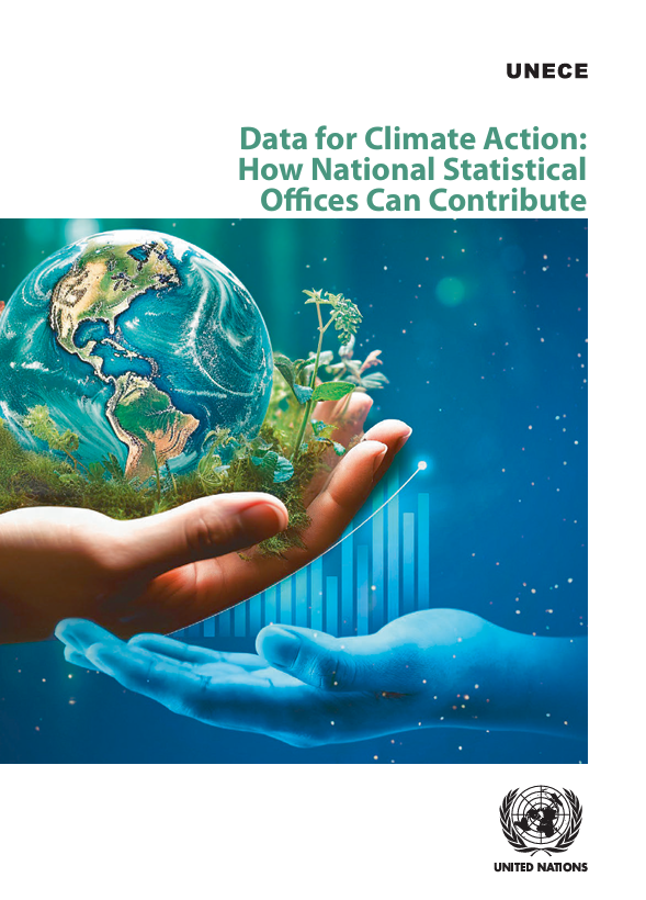
|
Data for Climate Action: How National Statistical Offices Can Contribute
To address the current and future information demands related to climate action, data producers need to understand the policy context, key stakeholders and their information needs, and be able to communicate effectively how their data can be used for policy applications. This publication aims to provide national statistical offices (NSOs) with such knowledge. It showcases what statistical systems already offer to support climate action and aims to provide ideas, inspiration and recommendations on how NSOs can make their contribution more valuable for data users.
2025.01
UNECE
|
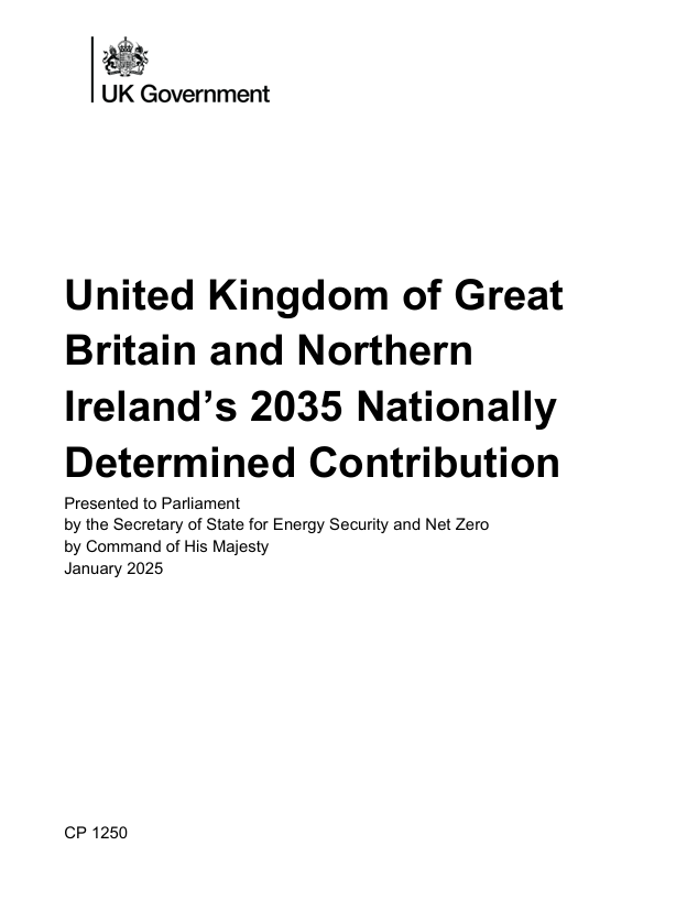
|
United Kingdom of Great Britain and Northern Ireland’s 2035 Nationally Determined Contribution
Under the Paris Agreement, each Party must submit its Nationally Determined Contribution (NDC) for its emissions reduction to the United Nations Framework Convention on Climate Change (UNFCCC) every 5 years, ahead of the relevant Conference of the Parties (COP).
NDCs covering the period 2031 to 2035 must be submitted by February 2025, ahead of COP30 in Brazil in November 2025.
The UK’s 2035 NDC target, announced by the Prime Minister at COP29 in November 2024, is to reduce all greenhouse gas emissions by at least 81% on 1990 levels, excluding international aviation and shipping emissions.
2025.01
Desnz
|
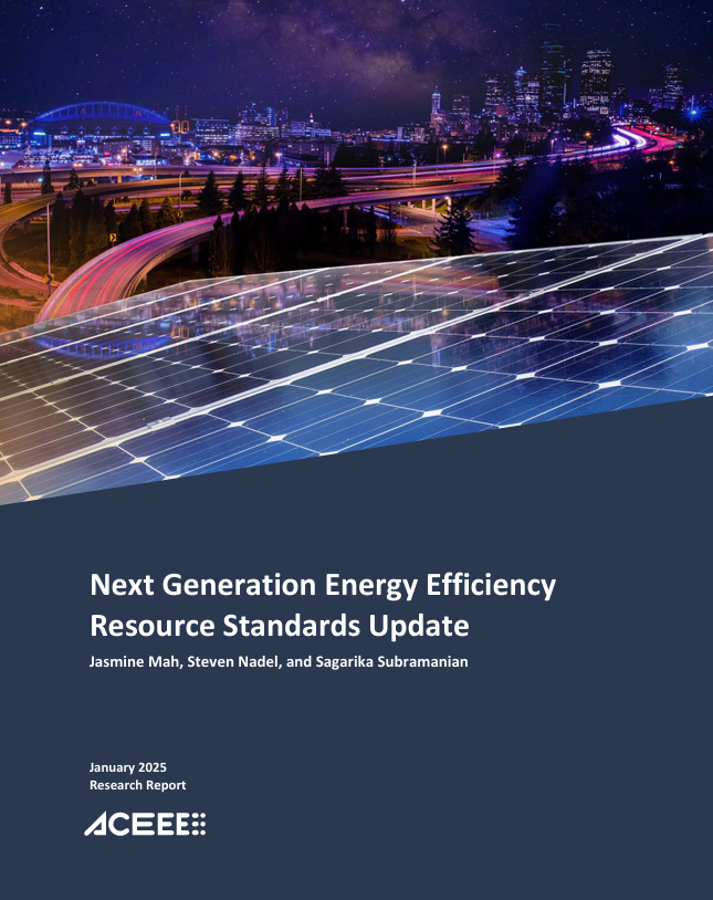
|
Next Generation Energy Efficiency Resource Standards Update
Presently, 26 states plus the District of Columbia have EERS policies in place. These states accounted for over 80% of utility energy efficiency program savings in 2023, making EERS policies a critical part of utility energy efficiency programs. On average, in 2023, utilities achieved 99% of their EERS goals, with some utilities exceeding goals and others falling a little short. Utilities exceeding goals were often aided by performance incentives that reward utilities for exceeding EERS minimums.
2025.01
ACEEE
|
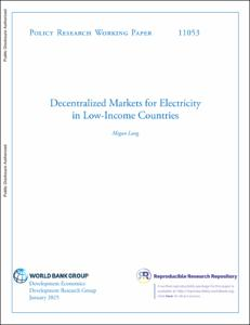
|
Decentralized Markets for Electricity in Low-Income Countries
Governments in low-income countries are increasingly integrating off-grid electricity provision into national electrification strategies, creating novel, decentralized markets for electricity. This paper studies a highly decentralized product that plays an important role in energy access: pay as you go (PAYGo) solar home systems.
2025.01
World Bank
|
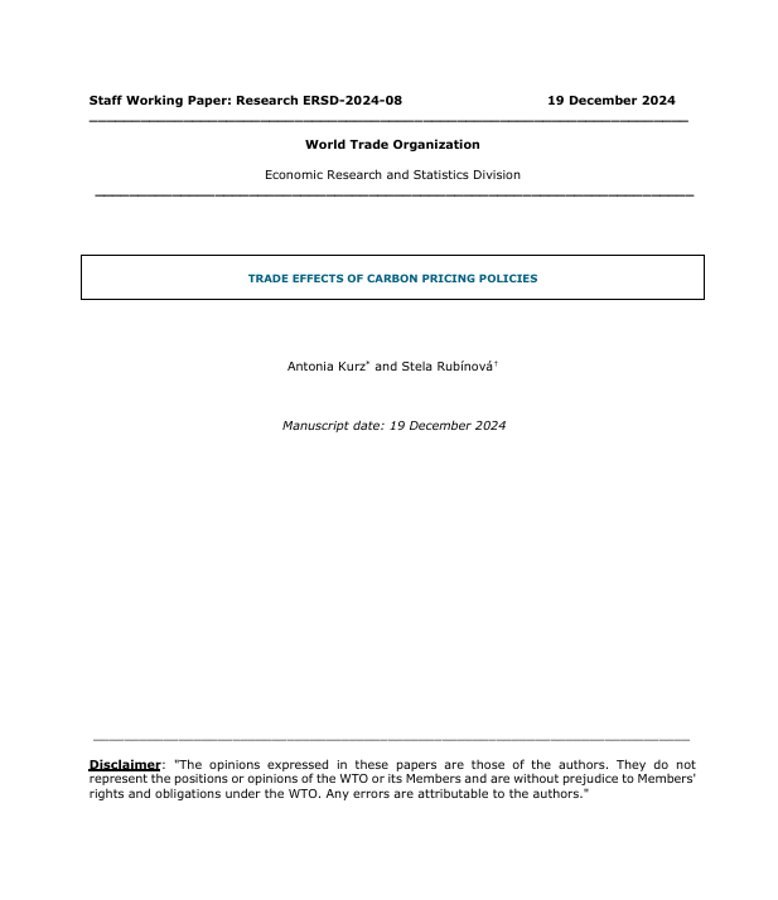
|
Trade Effects of Carbon Pricing Policies
In the first step, we use a fixed-effects gravity model of trade to estimate the export capabilities that determine the pattern of comparative advantage. In the second step, we regress the change in export capability of a country in an industry on the change in the country’s carbon pricing policy, interacted with the carbon intensity of the industry, controlling for country and industry fixed effects. Our results suggest that a 10% increase in carbon price is associated with a decline in export capability in the most carbon-intensive industry by 0.3% to 0.7%. On the other hand, industries with low carbon intensity are barely affected. Overall, we estimate that changes in all the policy instr
2024.12
WTO
|
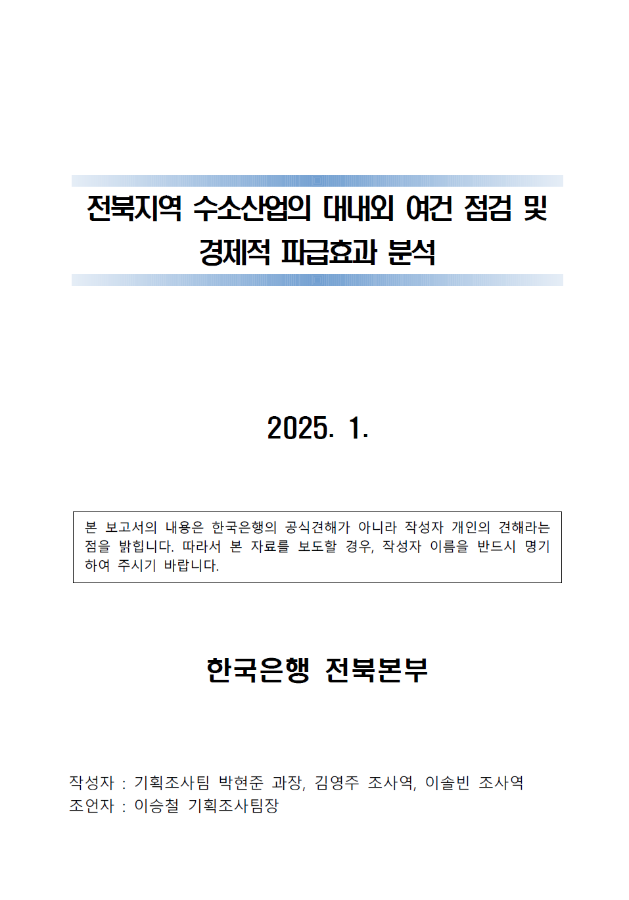
|
전북지역 수소산업의 대내외 여건 점검 및 경제적 파급효과 분석
최근 기후위기 대응과 에너지 안보의 중요성이 대두되면서 수소에 너지가 주목받고 있다. 주요국이 탄소중립 등 탈탄소화에 집중하는 가운데 일부 국가간 지정학적 문제로 에너지 안보의 중요성이 확대되고 있다. 동 상황에 서 전북특별자치도는 친환경적이면서 지역내 생산여건이 양호한 수소산업을 주력산업으로 육성하고자 노력해 왔다. 이에 본고는 전북지역 수소산업의 대내 외 여건과 경제적 파급효과를 분석하고자 한다.
2025.01
한국은행
|
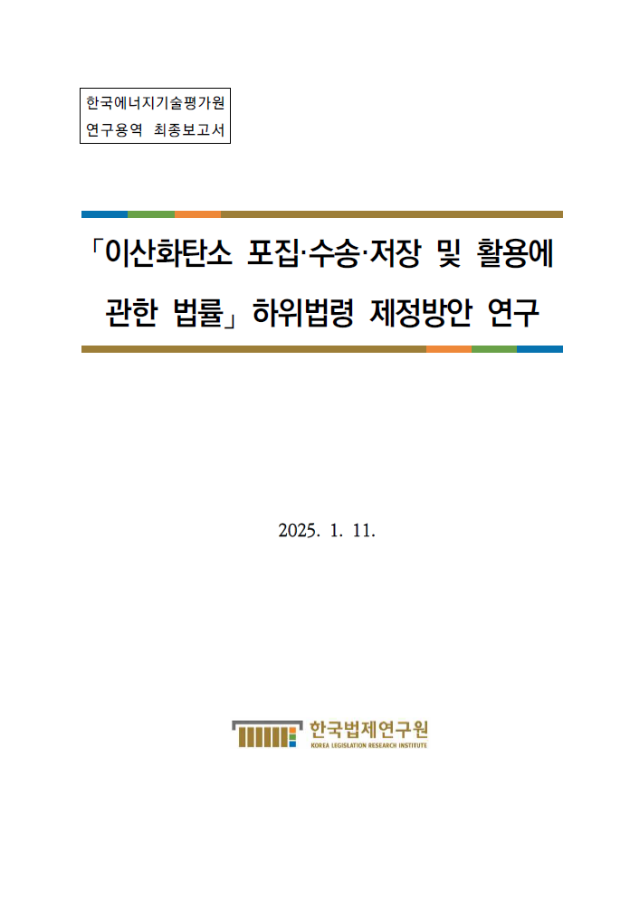
|
이산화탄소 포집·수송·저장 및 활용에 관한 법률" 하위법령 제정방안 연구
본 연구는 CCUS 산업의 활성화를 위한 사항을 규율하는 이산화탄소저장활용법의 후속 집행을 위한 하위법령안을 마련하는 연구로 하위법령안 및 그 해설서를 마련하는 것이 주요목적으로 한다. 법률의 시행 이후 원활한 집행을 위해서는 법률의 위임에 따라 이를 구체화하는 하위법령안의 마련이 필요함으로 정부의 정책과 법률의 제정 목적이 달성될 수 있도록 쟁점사항을 도출하고 이를 시행하기 위한 효과적인 하위법령안을 도출하고자 하였다.
2025.01
한국에너지기술평가원
|
